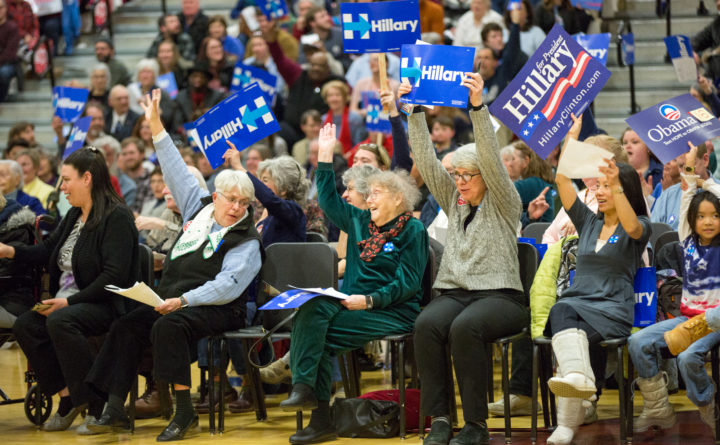
AUGUSTA, Maine — Democrats on a legislative committee endorsed a bill Friday that would have Maine switch from nominating caucuses to a state-run primary for the 2020 presidential election in a national transition away from the few remaining caucuses.
Maine had presidential primaries in 1996 and 2000. In the latter election, more than 2 1/2 times as many voters turned out as the 15 percent of Democrats and 7 percent of Republicans who voted at the party-run caucuses during the 2016 open-seat presidential election.
That is important because the Legislature’s fiscal office estimates that a primary shift would cost the state $122,000 in ballot printing and postage costs that will have to be funded during bipartisan negotiations around a two-year budget due in June. That budget requires two-thirds support in both legislative chambers. Municipalities would foot an estimated $857,000 more.
“In both cases, people chose not to vote because it was so inconvenient,” Luchini said of the 2016 caucuses.
Rep. Scott Strom of Pittsfield, the lead Republican on the committee, said he has heard dueling concerns from his party. Activists have told him they want caucuses because they’re easier to control, while lawmakers have largely cited the cost to taxpayers for another election.
Maine was among 10 states that held nominating caucuses in 2016, where Republicans backed U.S. Sen. Ted Cruz of Texas and Democrats picked Sen. Bernie Sanders of Vermont, who ended being the runners-up for the nominations. Six of those states have already switched to primaries, and other caucus states could, according to The New York Times.
For a roundup of Maine political news, click here to receive Daily Brief, Maine’s only newsletter on state politics via email on weekday mornings.
This article originally appeared on www.bangordailynews.com.







